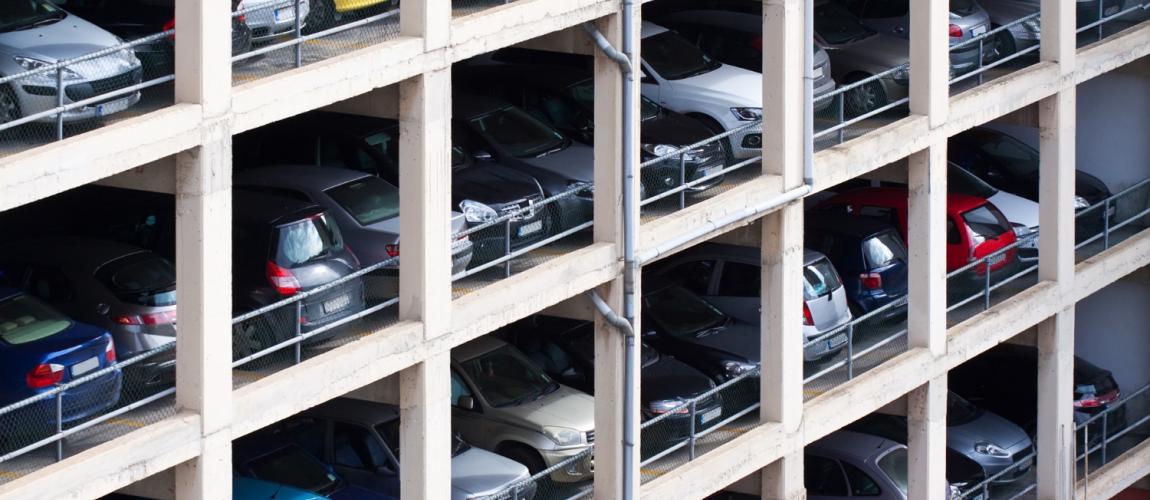Multi-level Car Parks in Thimphu City, Bhutan

Photo Credit: Image by Freepik
On this page: Challenging Case: Multi-level Car Parks in Thimphu City, Bhutan. Find more at the Municipal Public-Private Partnership Framework - Project Summaries section for brief summaries of around 100 projects from around the world, examples of successes and challenges, as well as innovative ideas on solutions, or visit the Guidelines on Innovative Revenues for Infrastructure section.
Project Summary: Background To help address traffic congestion in Thimphu City, the capital of the Kingdom of Bhutan, the Royal Government of Bhutan (RGoB), through Thimphu Thromde (City), planned the construction of both on- and off-street parking facilities in the city center, to be delivered through a PPP. Project Structure With help from the IFC as the City’s transaction advisor, the City executed a 22-year PPP concession contract with KCR Private Limited. KCR Private Limited is an SPV set up by the winning consortium following a competitive tender of the project. The SPV comprises CE Construction Private Limited (Nepal), KNG Private Limited (Bhutan), and Rinson Construction Private Limited (Bhutan). Under the PPP agreement, KCR is responsible for designing, developing, financing, operating, and maintaining two multi-level car parks (MLCPs) located at either extremity of the city’s main road. The two facilities are required to contain at least 550 parking spaces. Commercial facilities are allowed to occupy 20 percent of the total MLCP area. In addition, KCR is responsible for refurbishing, operating, and maintaining about 1,000 existing, off- and on-street public parking spaces in the city center. KCR is responsible for financing the full cost of the project and will earn revenue to recoup its investment entirely from parking fees and commercial rental income. KCR further agreed to pay the City an annual concession fee of USD 230,000. Most risks especially finance, design, construction, and demand are transferred to KCR. Lessons Learned The two MLCPs in Thimphu, which were expected to be completed by 5 November 2017 and 1 July 2018, respectively, were still under construction as of January 2019. Recent reports indicated that both MLCPs were expected to open in the first half of the calendar year 2019. KCR requested an extension of both the construction completion date and the concession period due to changes in the project design, an increase in the scope of work, and an unexpected need to relocate utility cables. These changes led to a rise in the project cost from Nu 450 million (USD 4 million) to almost Nu 800 million (USD 7 million).The extension request is still pending with the Bhutan Ministry of Finance.1 Keeping the construction cost-efficient and on-schedule under changing circumstances can be a significant challenge for a PPP project. Due diligence during the planning and project preparatory phases are vital to preventing cost overruns. At the same time, the contract should explicitly account for any changes to the project scope, design or works that increase the project cost and provide a clear framework for adapting to such a change, with due regard to the allocation of risk among the parties and the viability of the project. Source(s) http://www.ifc.org/wps/ wcm/connect/35 283f80467153999 a9abb9916182e35/ PPP+Stories_ Bhutan_Thimphu+ Parking. pdf?MOD=AJPERES/ accessed on January 26, 2019 https://thebhutanese. bt/thimphu-thromdeto- give-parking-spacewith- one-hand-buttakes- with-another/ accessed on January 26, 2019 http://www. kuenselonline.com/ multi-level-car-parkingto- be-completed-bythe- end-of-this-year/ accessed 5 February 2019 http://www. kuenselonline.com/ mlcp-at-norzin-lamto- open-this-month/ accessed 10 February 2019
The Guidelines on Innovative Revenues for Infrastructure (IRI) is intended to be a living document and will be reviewed at regular intervals. They have not been prepared with any specific transaction in mind and are meant to serve only as general guidance. It is therefore critical that the Guidelines be reviewed and adapted for specific transactions.
To find more, visit the Innovative Revenues for Infrastructure section and the Content Outline, or Download the Full Report. For feedback on the content of this section of the website or suggestions for links or materials that could be included, please contact the Public-Private Partnership Resource Center at ppp@worldbank.org.
Updated:
TABLE OF CONTENTS
I. Innovative Revenues for Infrastructure (IRI)
2. Introduction to Commercial Value Capture (CVC)
3. Applying CVC in Infrastructure Projects
2. Case Studies in CVC from International Experiences
Related Content
Select WBG PPP Toolkits
Featured Section Links
Additional Resources
Climate-Smart PPPs
Type of ResourceFinance Structures for PPP
Type of ResourceFinancing and Risk Mitigation
Type of Resource